5 Forgotten Video Games With Very Bonkers Backstories
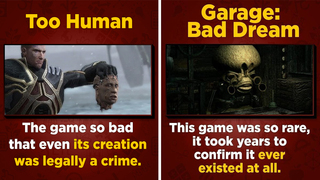
Video game storylines have evolved from basic and dumb to incredibly complex, but also dumb. Yet, for some games, the stories behind their creation are actually crazier than anything you could ever hope to play ...
The BioShock Predecessor You Never Heard Of Because It Became A Bollywood Game
Ken Levine's classics System Shock 2 and BioShock came out in 1999 and 2007, respectively. Even if you take like four years off to just think about how great a game-maker you are, you're still left with a wide enough window to make a game in between. And Levine totally did make one. So why haven't we heard of it? Such a high-profile team wouldn't release a game to no fanfare, even if the game were terrible -- especially if the game were terrible. Well, they totally did.
In the early 2000s, frantic action games like Devil May Cry were all the rage, so Levine decided to go for the same style of gameplay and edginess. The project's name was The Lost, and it told the story of a mother tasked with retrieving her daughter from hell, which is as good an excuse as any to kill demons. All of that leading to this peak of '00s edginess:
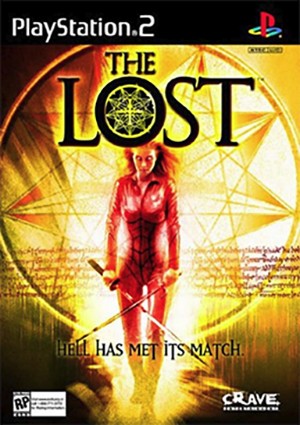
It was a big game with an excellent creator pedigree ... but the publisher didn't really care, so The Lost ended up in development limbo despite its near-finished state. A couple of years and after a "few" alterations later, the game came out as the type of budget title that grandparents buy disappointed kids for their birthdays. The Lost became Agni: Queen of Darkness, and now the blonde girl could turn into a brunette, which apparently made her much more badass.
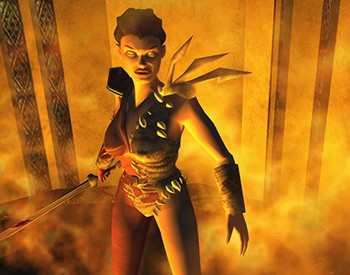
But wait, there's also ... dancing?
In a parallel universe, that makes sense; that would be a counterfeit game or a mod made by drunk hackers, but not here. Since the publisher didn't want the game, Ken Levine decided, "Well, then you know who's gonna like it? Bollywood." And promptly sold his game to the Indian market to be re-purposed for people who are fans of both slaying both demons and our hearts with sweet-ass dance moves.
Xi Jinping Devoted Himself To RuiningDevotion is a horror game by Taiwanese Studio Red Candle Games that enjoyed critical success for the few days it was out before getting axed from Steam. The 2019 title seemed scary as hell and garnered the positive reviews to back it up ... until Chinese players found a reference to President Xi Jinping's unconfirmed resemblance to Winnie the Pooh -- his second most hated thing.
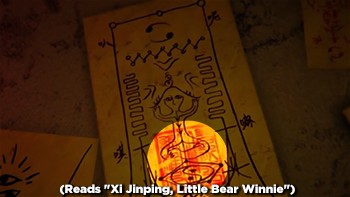
In no time, the overwhelmingly positive review steam review aggregates dropped to overwhelmingly negative, courtesy of a swarm of either Jinping fans or Winnie the Pooh haters.
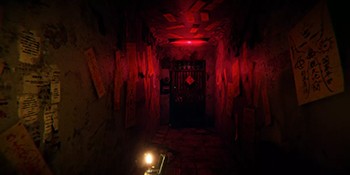
The review bombing was so intense it forced not only the developers to remove Devotion from all digital stores for a year, but Harvard University Library to jump in and add the game to its list of preserved titles. Devotion is still not back on Steam, but for a horror game to become an actual digital ghost seems like a kind of success.
For Years, Garage: Bad Dream Managed To Live Up To The Title
For over a decade, the weird Japanese title by the name of Garage: Bad Dream was the stuff of urban legend. One of those games that lived only in the collective minds of gaming web forum users who weren't even sure it really existed. They touted Garage as a rare gem that only ever had a few thousand copies on shelves and got mostly forgotten upon launch. But was it real, or were they just trolls? Luckily, around 2013, someone finally bought a rare copy (from a ... garage sale?) and uploaded it to the Internet, thus proving that it's real ... and weird as heck. The inspiration for it? A dream that director Tomomi Sakuba had that was so incredibly messed-up, he felt the need to perfectly recreate it in order to release it unto the unsuspecting population.


Somehow, despite featuring no gore and absolutely no actual instances of physical or psychological violence, the few who've played it describe the entire thing as extremely disturbing, and not because it is a bad game:
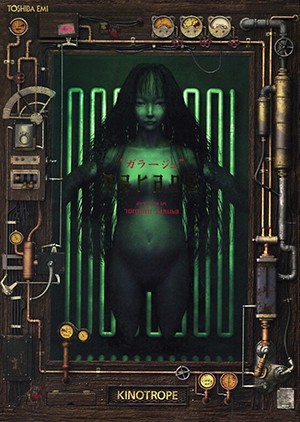
The year was 1995, and the world was divided between parents too scared about how violence in games like Mortal Kombat would affect their wiener kids, and kids too scared that their wiener parents would prevent more games like that from getting made. Enter Thrill Kill, a fighter meant to compete with Mortal Kombat, but one that ended up labeled as way too violent -- by the very people supposed to publish it. The publisher ended up dropping the game, leaving it officially canceled. The problem was, the game was either nearly done or straight-up completed at the time of cancellation.
And while it was definitely violent and very suggestive ...

... Its developers still believed in its potential, so they decided they just wouldn't have their game sharing a landfill with E.T. The team turned on spy mode, rescued the Kill-code, and released it for free on the Internet, making Thrill Kill a bootleg legend.
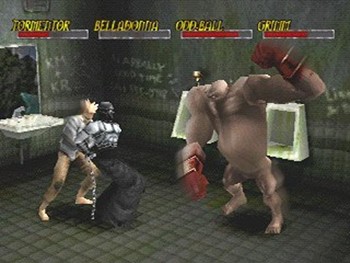
Too Human, The Game So Bad Its Creation Was A Crime
Too Human is the game that sealed the fate of Silicon Knights, a company once so beloved they survived turning Solid Snake into a rocket skater. Unfortunately for them, Dennis Dyack, their boss and total madman, tried his luck at fooling the gods. Of course, these gods are Epic Games, owners of Unreal Engine, the game engine that runs everything from Batman punching criminals in the dick to Johnny Cage punching Sub-Zero in the dick. Dyack was using the engine for Too Human, and amidst a troubled development process, instead of owning up to the game's issues and trying to fix them, he sued Epic Games for supposedly attempting to sabotage his game by providing a deliberately incomplete engine and licensing.
Epic stated that they didn't even give him permission to use the full extent of the code he was using, let alone giving him conspiracy-theory grade code intent on destroying his company from the inside. Epic then counter-sued Silicon Knights over asset misuse.
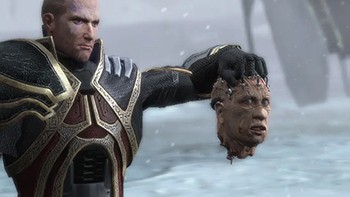
Not long after the game's release, the court sided with Epic. They then forced Silicon Knights to pay Epic over $4 million and even warranted the destruction of all unsold copies and removal of the game from digital storefronts.
Tiagosvn eagerly awaits you on Twitter, where he'll whisper similar stories on your ear to help you sleep well at night.
Top image: Toshiba-EMI, 1GAMES